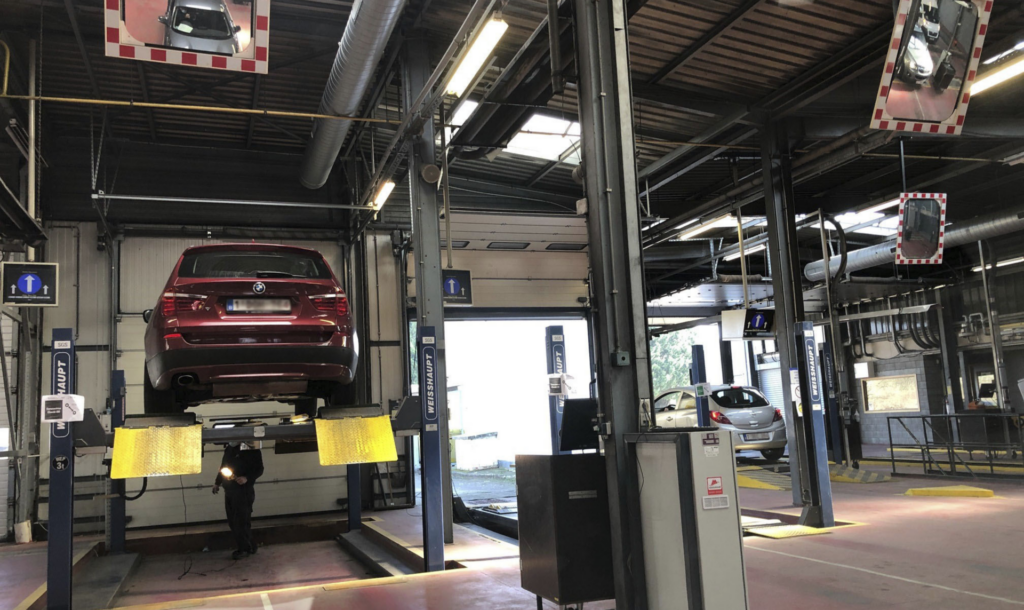Cars without or with a defective particle filter will no longer be able to pass the technical inspection in Belgium as part of a new measure that is "making the country a forerunner" in the fight against air pollution.
Starting from 1 July this year, car inspections in Flanders, Brussels and Wallonia will carry out a new particle filter test during the technical inspection of the car. If this shows that the car doesn't have the relevant filter or it is damaged, the car will fail the test.
"There has been talk of particulate filter fraud for a long time, and we are now tackling it," Flemish Mobility Minister Lydia Peeters said. The measure is mainly aimed at catching fraudsters, people who "deliberately drive around with a defective particulate filter or who deliberately remove their particulate filter, at the technical inspection."
For the monitoring of fine dust emissions, inspection centres in Belgium will start using a PN meter, which measures the number of dust particles that the particulate filter of a vehicle fails to stop.
With this additional technical control, Belgium is ahead of the other European countries, as the EU-wide directive relies on the opacimeter, a tool that is efficient for checking diesel vehicles without a particulate filter, meaning fraud involving the particulate filter cannot be detected.
Impact of filters on emissions
The widespread use of soot filters in diesel vehicles has helped reduce emissions of particulate matter from road transport in the last decade, however, faulty or poorly functioning particulate filters have a major negative impact on air quality.
"When working correctly, these filters are effective, but when damaged, worn out or even completely removed, the number of particles emitted can soar: vehicles can then emit up to 500 times more particulate matter than with a properly functioning filter," said Elke Van den Brandt, Brussels Minister for Mobility.
Related News
- Car service inspections again possible without appointment from 1 August
- Dieselgate: Fiat Chrysler agrees to pay $300 million penalty for anti-pollution fraud
A measuring result above 1,000,000 fine particles/cm³ means that the filter is broken or missing, which will result in a driving ban, together with the obligation to have the vehicle checked again after it has been repaired.
Justifying measure
Air pollution results thousands of premature deaths per year in Belgium, making it a major health problem. "These consequences, and the health costs associated with them, fully justify the adoption of measures to constantly reduce the main sources of pollution," Dr Patricia Palacios, from the Cliniques Universitaires Saint-Luc, said.
The state or presence of filters will be checked on all passenger cars and vans with diesel engines of the Euro 5a standard and newer. If a major defect is found, the validity of the inspection certificate will be limited to 15 days, so that the owner of the vehicle can have the defect repaired.
The price for the technical inspection will not change as a result of this change, and the test shouldn't take too long or harm the engine.
Another study has been launched to examine whether the scope can be extended to include heavy goods vehicles, buses and petrol-driven vehicles.

